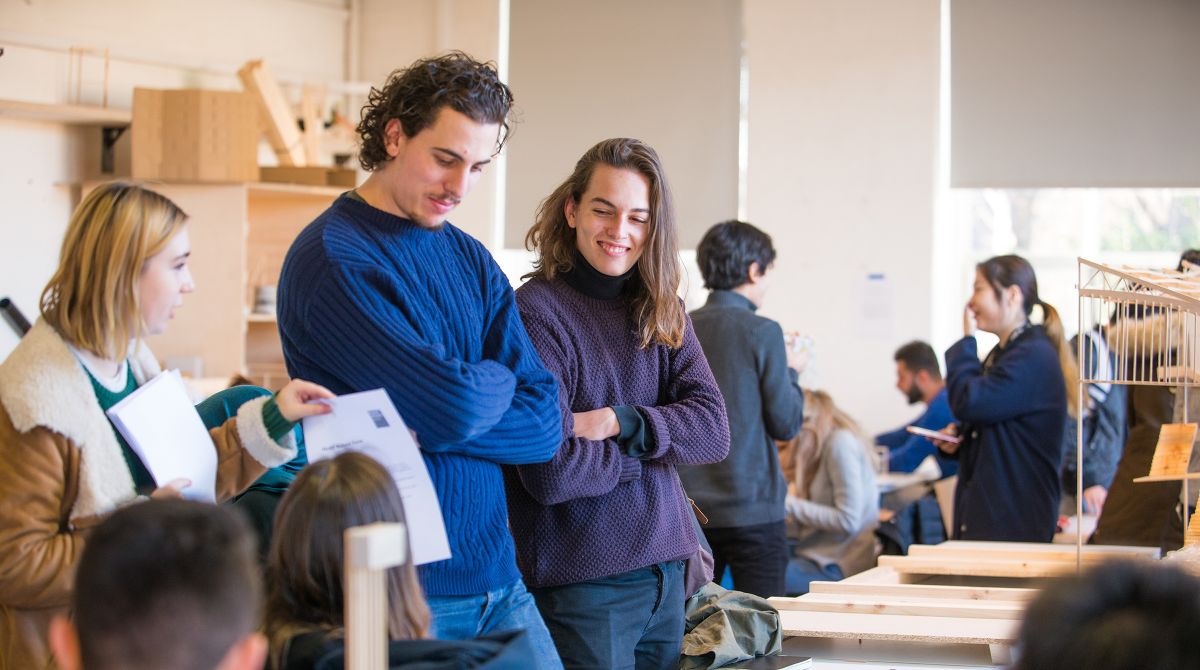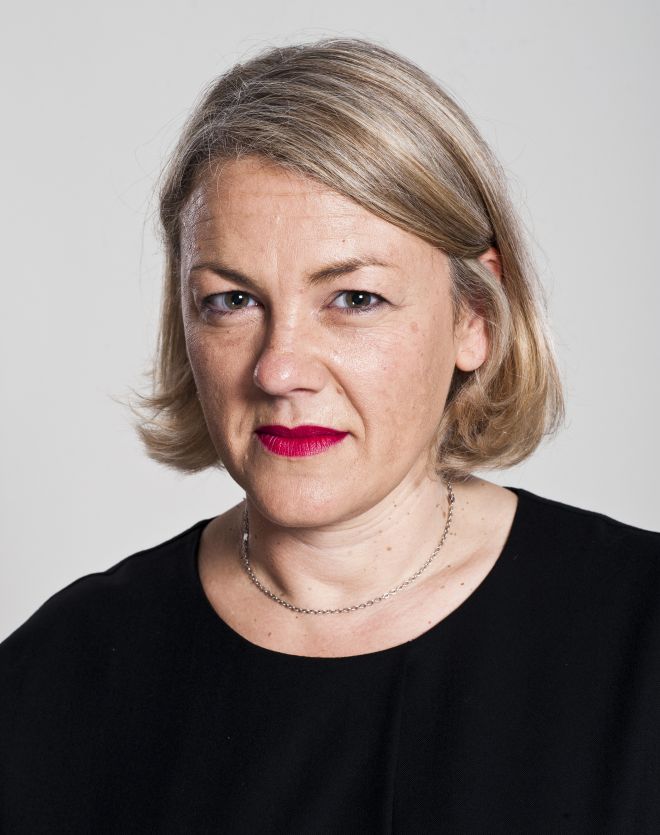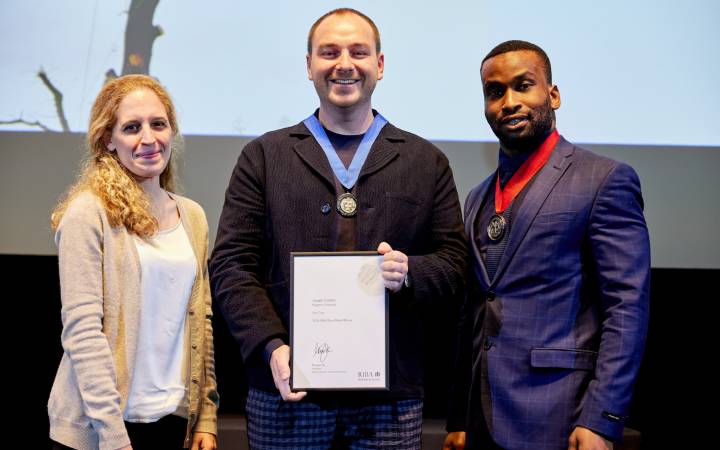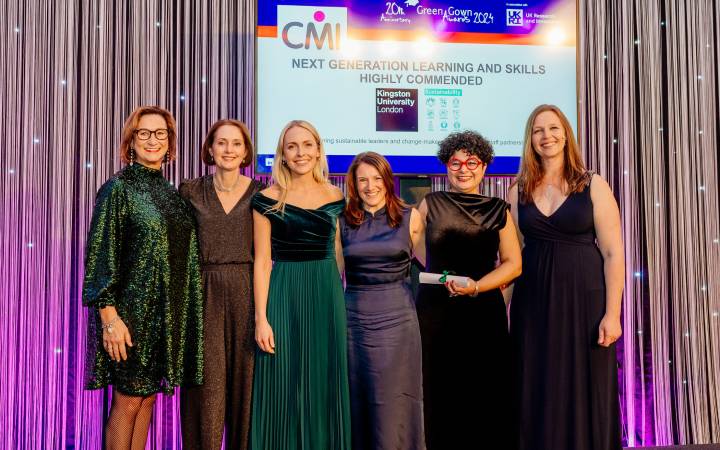New Kingston University head of school Jane Pavitt to cultivate close relationship between critical studies and practice in art school environment
Posted Friday 28 April 2017

Kingston University's new head of the school of Critical Studies and Creative Industries says embedding critical and historical thinking alongside art and design practice is fundamental to a strong and diverse art school education.
Professor Jane Pavitt is joining the University to establish the new school during an exciting period of change for the faculty. "I want to cultivate an even greater relationship between critical thinking and practice within Kingston University, as well as nurturing a culture of experimentation," she said. "Critical studies and creative industries students are practitioners in their own right and that's what I'm really interested to develop. The cultural and creative industries are a core area of growth and innovation in the UK and globally, and we need to foster new kinds of teaching, professional development and research in response to this."
With a special interest in twentieth century and contemporary design, Professor Pavitt has a particular area of expertise in design curation and has published widely on design and architectural history. She joins Kingston University following six years as Dean of the School of Humanities at the Royal College of Art, where she was also the Head of postgraduate History of Design from 2010 to 2015. Prior to that, she curated a series of influential exhibitions, on subjects ranging from contemporary design and branding, to cold war modernism, and postmodernism as the University of Brighton's Principal Research Fellow at the V&A Museum. Professor Pavitt is co-curating an exhibition on high-tech architecture and design, for the Sainsbury Centre for Visual Arts, due to open in 2018.
 Professor Jane PavittCurrent research interests include the political and social contexts for architecture and design in post-war Britain, in relation to design in the public sector and the growth of a design research culture. With Europe on the cusp of major change, these areas seem especially pertinent. "We will be entering a period where both design practice and design education will need to be rethought," Professor Pavitt said. "Art and design are very important forms of cultural and political currency, even more so in coming years with the re-framing of the European project and potential change in the public sector. My research focuses on the context behind how change emerges. We are at a really vital juncture for the historical framework of design in terms of public sector, political and educational contexts - all of those things are up for grabs again," she said.
Professor Jane PavittCurrent research interests include the political and social contexts for architecture and design in post-war Britain, in relation to design in the public sector and the growth of a design research culture. With Europe on the cusp of major change, these areas seem especially pertinent. "We will be entering a period where both design practice and design education will need to be rethought," Professor Pavitt said. "Art and design are very important forms of cultural and political currency, even more so in coming years with the re-framing of the European project and potential change in the public sector. My research focuses on the context behind how change emerges. We are at a really vital juncture for the historical framework of design in terms of public sector, political and educational contexts - all of those things are up for grabs again," she said.
Acting Dean of the Faculty of Art, Design and Architecture, Penny Sparke said Professor Pavitt's expertise in the fields of design history and visual culture will benefit Kingston University greatly. "Her experiences in the world of curating will be invaluable to our highly successful design curation course and to the exciting new developments in the creative industries programmes," she said.
In a return to its origins, Kingston University's Faculty of Art, Design and Architecture will be known as Kingston School of Art from September 2017. The new name reflects the faculty's legacy in an era when creative thinkers are highly valued in the rapidly growing creative and cultural industries. "What strikes me when I am on campus at Knights Park is the great sense of community and how closely the diverse student body work together," Professor Pavitt said.
The faculty's ethos of thinking through making will inform new developments within the new school. "The tools the students use are different to those studying studio-based subjects. They use the written word, critical theory, curatorial narrative or journalistic processes to support and interpret art and design" she explained. "In addition, the historical analysis of visual and material culture should be central to the practices of the art school. Kingston University has a strong tradition of this which I'm keen to build upon."
Identifying a career trajectory is an increasingly important factor in prospective students' course choices. Professor Pavitt believes that there is a broader range of professional applications for graduates of the school of Critical Studies and Creative industries than previously imagined. "Those studying at Kingston School of Art will be at the heart of where the future of art and design is actively being rethought," she explained. "Kingston University's graduates should be at the forefront of emerging professional opportunities in areas ranging from new media, educational and communications roles to new forms of public programming or engagement with the arts," she said.
- Find out more about the School of Critical Studies and Creative Industries
Contact us
General enquiries:
Journalists only:
- Communications team
Tel: +44 (0)20 8417 3034
Email us



